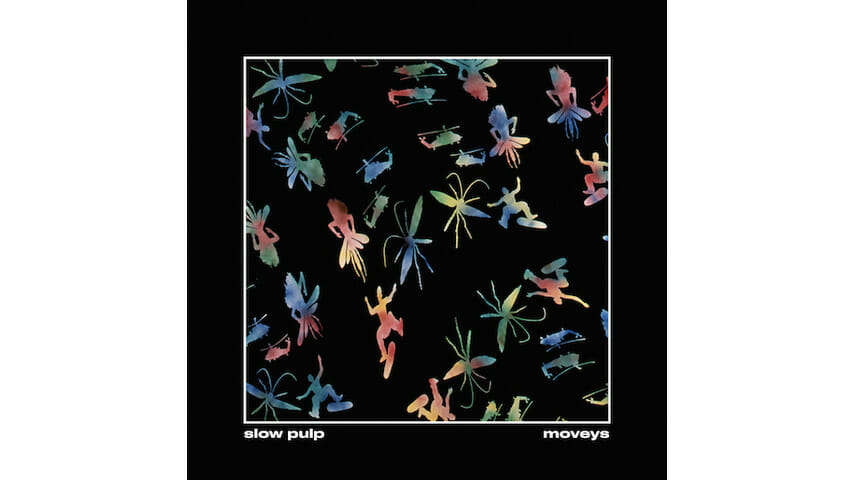Slow Pulp’s Moveys Celebrates Small Victories
The Chicago quartet's full-length debut has the confidence of a mid-career release

Like a message in a bottle or the light of a long-dead star, music takes time to make its way from its source to its receiver. These things are written and recorded, teased and announced, previewed and anticipated, pressed and packaged, and eventually, New Music Friday rolls around and delivers unto you a new album. But to the band who crafted it, it’s not new at all—they know every note intimately, having lived with them all for weeks, months, or even years at a time. The music reflects that period of their lives, as if affixed with a timestamp only they can see. So while listeners are reckoning with something new, artists are being pulled back into the past, returning to a moment they may no longer recognize.
The self-produced debut album from indie-rock four-piece Slow Pulp—Emily Massey (vocals/guitar), Henry Stoehr (guitar), Alex Leeds (bass) and Teddy Mathews (drums)—may as well have been written and recorded in another lifetime. The Madison-bred, Chicago-based band began work on their first full-length last spring, and they redirected their efforts after Massey was diagnosed with Lyme disease and chronic Mono; her newfound focus on self-care dovetailed with Slow Pulp fine-tuning their approach to songwriting, parallel processes each rooted in accountability and communication. These new songs came together in earnest during the band’s fall 2019 tour alongside Alex G, but in March 2020, as they were finishing the album, Massey’s parents were injured in a serious car accident, requiring her to return home to Madison to care for them—soon after, the COVID-19 pandemic’s Stateside spread required her to stay there. The ensuing seven months of lockdown have distorted time almost beyond recognition.
The band finished Moveys (its title, in part, a nod to the upheaval of its making) from afar, and it’s better than it has any right to be, a vividly realized debut with the bold, exploratory confidence of a mid-career release. The shoegaze/post-punk blend that Slow Pulp built their buzz on is present, but there’s much more in the mixture here, particularly on the album’s A-side. Just take the rosy glow of “New Horse,” a statement of purpose that leads off Moveys on an expansive and dynamic note, its honeyed acoustic finger-picking opening onto a sea of thrumming synths and overlapping vocals. “If I could treat myself better / I know I’m still getting better / I might come back / I’ll hope for that,” sings Massey, looking forward to her future in a way that seems almost unfathomable of late. The song finds beauty not in some far-flung destination finally arrived at, but in that next step along the path, and the knowledge it will be followed by another, and another—small victories en route to the big one, which may or may not ever be attainable.
-

-

-

-

-

-

-

-

-

-

-

-

-

-

-

-

-

-

-

-

-

-

-

-

-

-

-

-

-

-

-

-

-

-

-

-

-

-

-

-








































